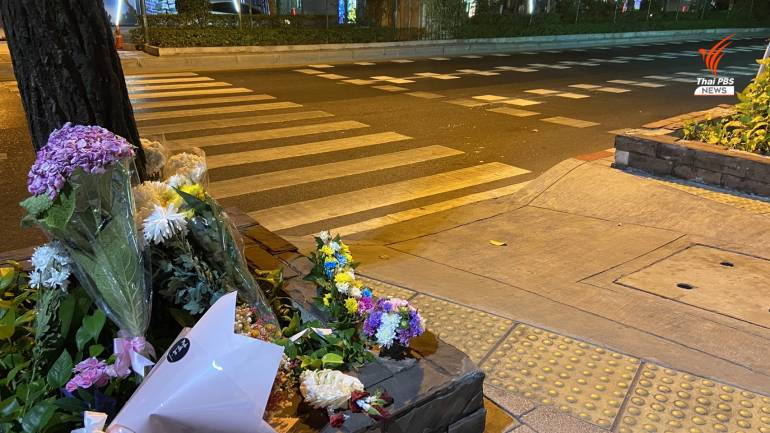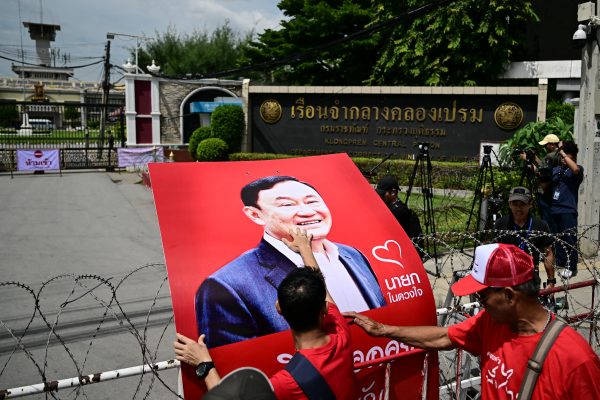Doctor’s death signals overdue change in road safety mentality

The public outrage over the recent death of a doctor, who was simply crossing the road in broad daylight on a zebra crossing, which was caused by a policeman, seems a very natural and valid response. How can such a person, so valuable to society, be killed in such a senseless manner? What a waste of a precious life, who had studied hard for years to save other lives! Why are the police killing the innocent, rather than protecting them, as they should and must?
The fact that the victim was a doctor should matter, as does any needless loss of life, but the real problem behind this tragedy is the non-existence of road safety in Thailand.
Putting aside the fact that the alleged perpetrator was a policeman, despite the irony and how wrong it was on so many levels, the fatal accident shed light on two of the root causes of the problem – the mentality that pedestrians do not matter and the lax enforcement of laws.
For any visitor to Thailand, it may not take more than a couple of days to realise how the zebra crossing is merely strange white pattern painted on the road, done to fulfill the road building requirements, and that to cross a road, pedestrians had better refer to the traffic lights as an indicator that the traffic has definitely stopped. Even so, they’d better run or, at least, walk fast.
Needless to say, Thailand is not a pedestrian or bicycle-friendly country. Only motor vehicles matter. The bigger they are, the more they matter. Bicycle lanes, touted by certain cities as flagship projects, have long been claimed as motorcycle parking spaces. Without the red light to ensure traffic has actually stopped (and sometimes it doesn’t), pedestrians often find themselves surprised that some drivers do decide to stop for them to cross, often resulting in a slight bow to show appreciation, when the right of way at an official crossing actually belongs to the pedestrian, not the motor vehicle.
For pedestrians to cross a two-way street, there exists another problem. Cars in the opposing lanes frequently do not stop together, which often leaves people in the middle of the road, afraid and unsure of how or when they will make it to the other side.
One may argue that there have been pedestrian light signals installed on several busy Bangkok roads, even with countdown timers. Oftentimes, however, the signals stop functioning and remain unrepaired. The bigger problem is that many motorists do not even notice that such signals exist. I have witnessed firsthand some Good Samaritan motorcycle taxis blocking traffic to help office workers cross the road during the hectic lunch break. The lights were installed more than a decade ago. Many of them have ceased to function. The motorist’s mindset has not moved an inch.
When I first moved to Australia as a teenager, I found myself initially unable to shake off the habit of running while crossing the road, even if the pedestrian light was green. I was teased and mocked by my more internationally savvy Thai friend. It took me a while to get familiar with the heavenly feeling of seeing the cars slowing down from as far as 100 metres away, when I hadn’t yet even stepped foot on the road. Buses wait patiently for the elderly to take each careful step. Meanwhile, here in Thailand, they do not even stop at the recognised bus stops. Passengers are merely disgorged into the inner lane of traffic and have to fend for themselves when crossing the road. The overall cost of living is cheaper in Thailand than in the West, but so are lives.
Dozens of people die in Thailand’s road accidents every day, higher than the daily COVID-19 fatalities on most days, with Thailand’s roads ranking ASEAN’s most and the world’s ninth most fatal, according to the World Health Organization (WHO)’s report in 2018. Several cyclists who have toured the world have met their early and very unfortunate demise on Thailand’s thoroughfares.
With this latest senseless incident, we should not be asking if it’s time to do something about it, because action is long overdue, and I’m not talking about just putting up warning signs. The mindset has to change. It starts with all of us. Yes, functioning pedestrian light signals and fining drivers that break traffic rules would help but, without possessing a mentality in which lives and road discipline matter, then lives will continue to be lost.
By Hathai Techakitteranun, Thai PBS World’s Deputy Editor-in-Chief






